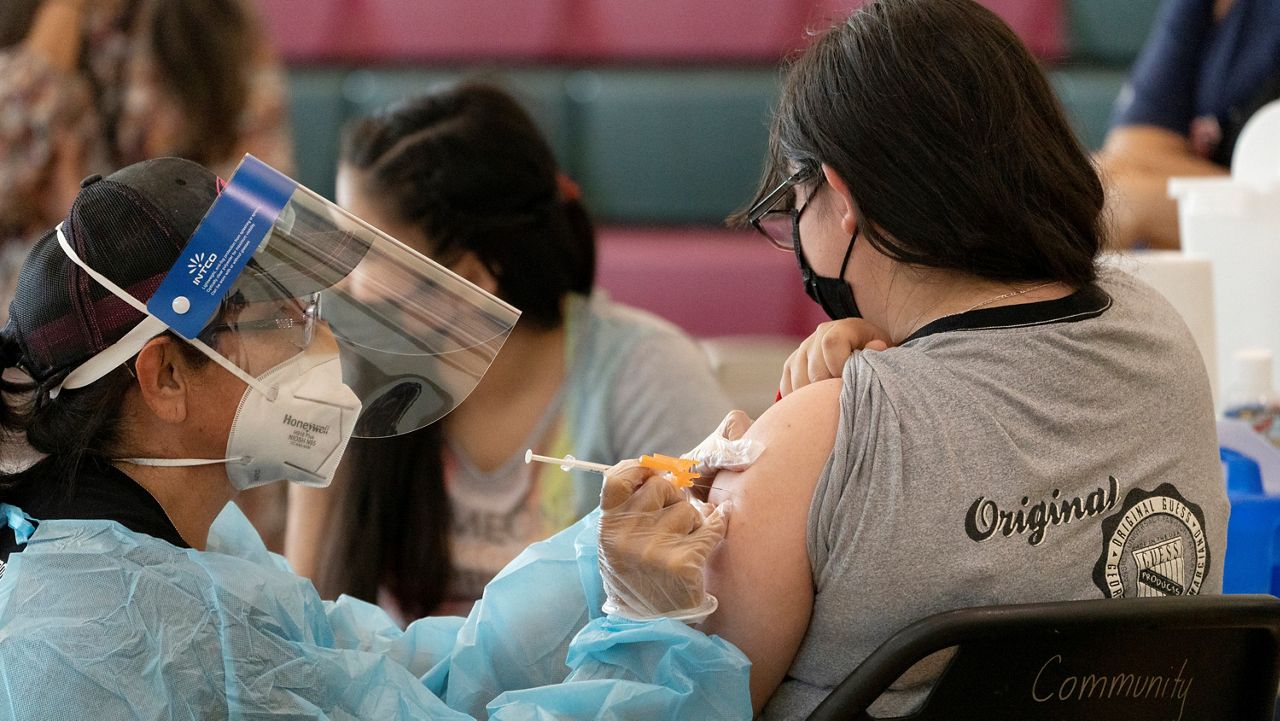The number of Americans who believe it’s important for parents to get their children vaccinated is falling, with Republicans and Republican-leaning adults accounting almost entirely for the decline, a new poll found.
What You Need To Know
- The number of Americans who believe it’s important for parents to get their children vaccinated is falling, with Republicans and Republican-leaning adults accounting almost entirely for the decline, a new poll found
- According to a Gallup survey released Wednesday, 40% of Americans say it is extremely important for children to be vaccinated — down from 58% in 2019 and 64% in 2001
- Twenty-six percent of Republican and Republican leaners believe today it’s extremely important for parents to get their children vaccinated — half of what it was in 2019 (52%)
- In 2001, there was little difference between Democrats’ and Republicans’ views on childhood vaccines
According to a Gallup survey released Wednesday, 40% of Americans say it is extremely important for children to be vaccinated — down from 58% in 2019 and 64% in 2001.
In Gallup’s 2001 survey that asked the same questions, 94% of Americans said they believed it was “extremely important” or “very important” to vaccinate children. Today, that number is 69%.
While vaccine sentiment has remained relatively flat among Democrats and Democratic-leaning adults over the years, it has plummeted among conservatives, the poll found.
Twenty-six percent of Republican and Republican leaners believe today it’s extremely important for parents to get their children vaccinated — half of what it was in 2019 (52%).
In 2001, there was little difference between Democrats’ and Republicans’ views on childhood vaccines — 66% of liberals and 62% of conservatives thought they were extremely important, according to Gallup. Today, there is a 34-point gap between the two groups — 63% of Democrats and Democratic-leaning adults say the shots are extremely important, but just 26% of Republican and Republican leaners agree.
One in nine conservatives (11%) said they do not think it is important at all for children to be vaccinated. But overall, a slim majority of Republicans and Republican leaners — 52% — say the shots are either extremely or very important.
Among Democrats, that number is 93%.
Americans are also much less likely now to believe the government should require children to be vaccinated against contagious diseases. In 1991, 81% of participants in a Princeton Survey Research Associates poll favored government vaccine mandates for kids, down today to 51% in Gallup’s poll.
The 1991 survey did not ask participants about their political leanings. But Gallup found that conservatives’ opposition to mandates has grown since 2019 while there has been little change among Democrats and Democratic leaners.
Conservatives also are more likely now to believe vaccines are more dangerous than the diseases they are designed to prevent, according to the survey. Today, 31% of Republican and Republican leaners say the shots are the bigger threat, compared to 12% in 2019 and 6% in 2001.
Just 5% of Democrats and Democratic leaners say today the vaccines are the bigger concern.
During the COVID-19 pandemic, many Republicans voiced concerns, often supported by misinformation, about the safety of the new coronavirus vaccines.
In July 2021, Surgeon General Dr. Vivek Murthy issued a health advisory saying that misinformation was playing a large role in preventing Americans from getting vaccinated.
It appears hesitancy about vaccines has since spread to shots other than for COVID-19. Last year, the Centers for Disease Control and Prevention published a study that found rates for routine vaccinations for kindergarteners fell from 95% in the 2019-20 school year to 93% in 2021-22. That difference translated into at least 250,000 children not being protected, officials said.
The CDC recommends a wide range of vaccines for children, including for polio, chickenpox, hepatitis A and B, and measles, mumps and rubella.
Gallup’s telephone survey of 1,010 adults was conducted from July 1-21 across all 50 states and the District of Columbia.



